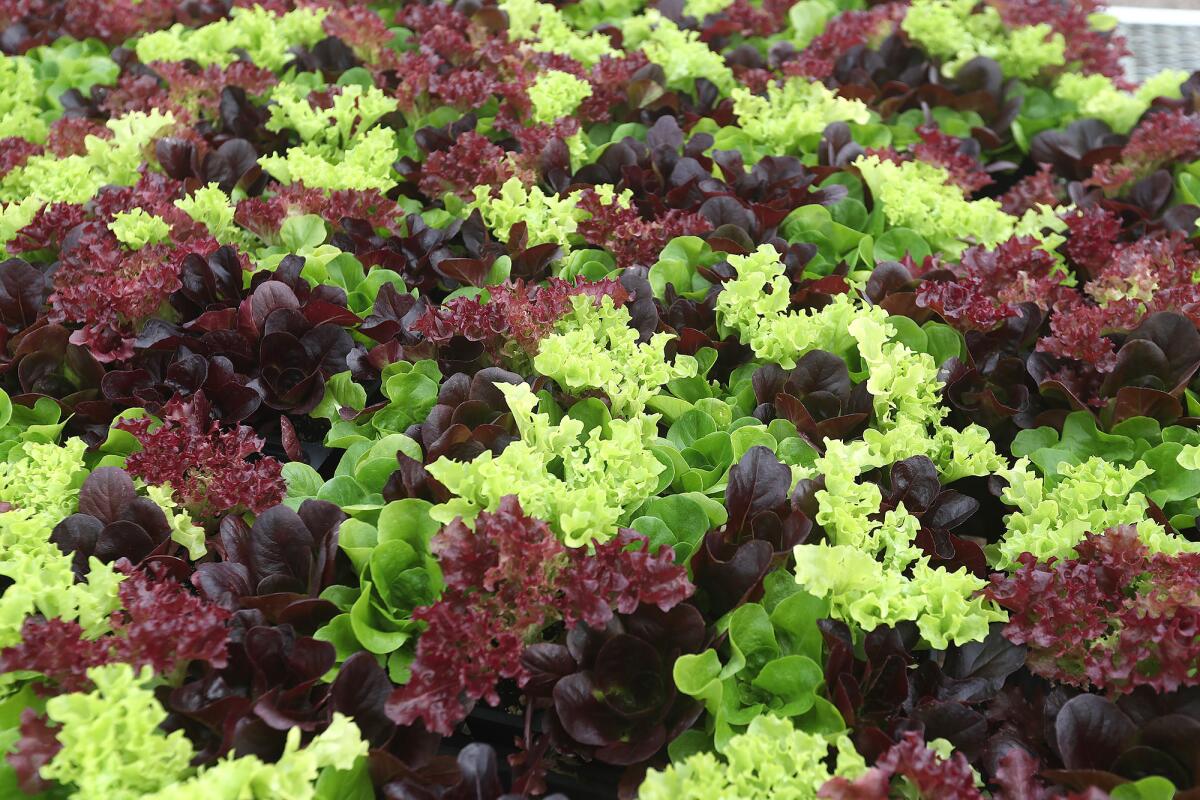Farm-to-School summit at Ecology Center hosts community hungry for change

Crunchy vegetables with Yucatan-style pumpkin seed dip. Squash quesadillas with avocado salsa. Heiroom beans. Little gem lettuce with lemon-garlic dressing.
This might sound like a menu for the newest farm-to-table restaurant, but it is actually a menu the Alice Waters Institute envisions for public school lunches. It is also the lunch served at last week’s Farm-to-School summit at the Ecology Center in San Juan Capistrano.
The all-day event on Oct. 24, hosted by Rumiano Cheese, gathered 25 local farmers, thought leaders and food service professionals from 35 California school districts, all dedicated to getting more California K-12 schools to source organic, local, regenerative school lunches.
“This is a gathering of really the ecosystem around K-12 and local farming,” said Joe Baird, a past chairman at the Ecology Board and chief executive officer of Rumiano Cheese. “We think it is probably the first of its kind in terms of bringing farmers in direct contact with districts and people that are in the middle to empower and bridge the gap.”
Rumiano Cheese was recently awarded a USDA grant to bring organic cheese to K-12 schools in California. Baird said schools want to support local agriculture, and while there is financial empowerment to do so through the U.S. Department of Agriculture and the California Department of Food and Agriculture, there is still a disconnect between farms and schools.
“What we are hoping to do is build the supply chain, if you will, ” said Baird. “How does the product get from a farmer or a food hub to a school district?”
Attendees heard from speakers from the Alice Waters Institute, the Chef Ann Foundation and the California Department of Food and Agriculture and also took a tour of the Ecology Center farm, which has the distinction of being the nation’s first certified regenerative organic fruit and vegetable farm. Three panels titled “Nature,” “Nurture” and “Nutrients” covered topics like “A Roadmap to Regenerative Farming/Agriculture,” with panelists like Andrew Dickinson of Dickinson Family Farms.

Guests enjoyed the seasonal lunch, inspired by chef, author and activist Alice Waters’ forthcoming school lunch manifesto titled “School Lunch Revolution.” The Alice Waters Institute has partnered with Rumiano Cheese as part of a CDFA grant to help school food service directors make connections with farmers and food producers in their local food community.
“The goal is to activate something we like to call school supported agriculture,” said Jennifer Sherman, culinary director of the Alice Waters Institute. “How can we take the purchasing power of the K-12 and higher ed schools in the state of California and support our local, small BIPOC family farms with direct purchasing?”
Building a relationship between local produce providers and schools benefits all parties involved, Sherman said.
“It is a win-win-win because the kids get really delicious seasonal organic local food, the farmers in the rural communities are supported, we keep the dollars in the community, and we take care of the planet,” said Sherman.
The Alice Waters Institute is an extension of work Waters has done for many years.
Waters, who opened the iconic Chez Panisse in Berkeley in 1971, founded the the Edible Schoolyard Project in 1995. The nonprofit organization effectively transformed the food experience at a public middle school in Berkeley. Today the Alice Waters Institute seeks to partner with the state‘s K-12 public schools and higher education to expand food procurement systems. It does this work at summits like the one held at the Ecology Center and by working directly with schools.
“In order to get kids to think beyond oranges, apples and bananas and carrot nubbins and chicken nuggets we need to edibly educate kids,” said Sherman. “The Edible Schoolyard Project is 30 years old, and it is bringing gardens and kitchen classrooms into schools and actually teaching kids about where their food comes from. Now the next iteration is this Institute, which is taking their knowledge and now connecting it to the cafeteria.”
The summit was attended by leaders like Kristin Hilleman, director of food and nutrition services at Capistrano Unified School District, which is at the forefront of the farm-to-school movement.
“Our district is participating in the Chef Ann Foundation Healthy School Food Pathways, where we have some of our employees who work with us currently going through the pre-apprenticeship, so we are an apprenticeship site,” said Hilleman. “In addition to that we have been working with Shared Plate Strategies as a consult group to help us with our procurement of all things farm-school related.”
The Ann Foundation works to make sure school food professionals, like Hilleman, have the resources, funding and support necessary for them to provide healthy and delicious school meals that not only benefit children’s health but the planet. Hilleman, who has been in school nutrition for nearly 20 years, said she has seen positive changes in national school lunch programs.
“In the years since I have been in this, I have seen a distinctive shift toward healthier items,” said Hilleman. “We had the Healthy, Hunger-Free Kids Act go into place back in 2010. That shifted the meal pattern into a standardized meal pattern for every school district participating.”
Hilleman said collaboration efforts of nonprofits and other local organizations, like those present that summit, have also been a helpful.
“The Chef Ann Foundation, Eat Real, Center for Ecoliteracy, Friends of the Earth … so many of them have helped us bridge that gap between being able to work with large manufacturers and draw it down to our small manufacturers and our farmers.”
The summit ended with a networking mixer, allowing speakers and attendees to connect and keep up the momentum of the movement.
Baird noted that in his time working with the Ecology Center, he has seen the nonprofit grow.

“We went from 1 acre and really just an educational center with nine staff members to today, nearly 28 acres and a farm and ecosystem that is still growing,” he said.
He and the other leaders at the summit would like to see the same kind of growth happen for the people working together to get organic, local, regenerative food into school cafeterias.
“There is a movement happening,” said Baird. “My hope is people see that and they want to become part of it. “
All the latest on Orange County from Orange County.
Get our free TimesOC newsletter.
You may occasionally receive promotional content from the Daily Pilot.




